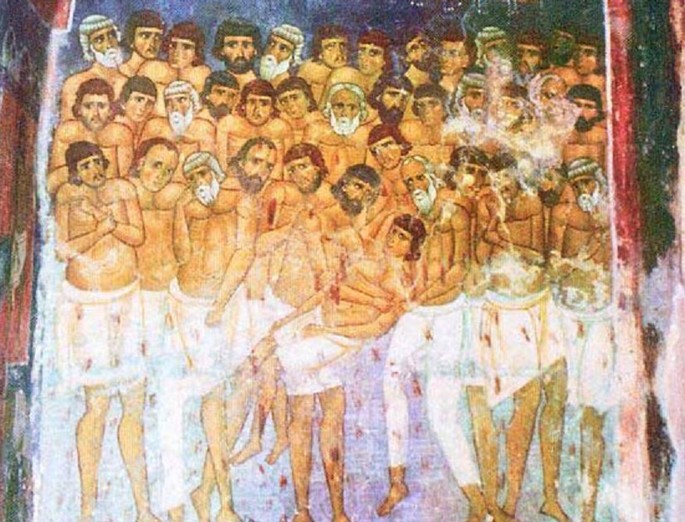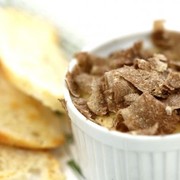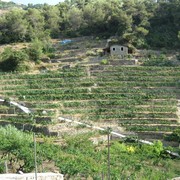As the legend says, the martyrs were Roman soldiers that fervently believed in Christ. During the time of Emperor Licinius, in Armenia, more particularly in Sivas citadel ruled by a person named Agricolae, they were caught, tied up because of their belief and then thrown in a frozen pond. But, the sun rose and thawed the ice, warmed the water and thus, Christ’s martyrs were rescued. Enraged, the tormentors pulled them to shore and crushed their ankles with hammers.
This is the origin of the custom that people should drink forty glasses of wine (or would give them as offerings) and this is also the origin of sweet rolls covered in honey and walnut named “martyrs” (and forty of them had to be eaten too), etc. In fact, this is another case of belief, tradition, custom and ritual overlapping.

In the old times, Agriculture New Year could not be celebrated in another manner but by a series of events connected to rite, remaking the bonds with the souls of the dead, calling their spirits, etc.:
“The orthodox calendar celebrates on March 9th an important day, that of the forty martyr saints, a day of specific food offerings when ritual eating could influence the state of health and work ability of the people in the agriculture year to come (on that day, people would officially plowfor the first time).
Sweet rolls baked in bee, bird or man shape testify to the syncretism of that practice and thus are benchmark of several ceremonies overlapping: welcoming the spring and the birds that return to their nests, a celebration of bees that indicated the beginning of the beekeeping year, as well as a celebration of the dead, of remembering the forgotten ones (this could be the cause for the increased consumption of ritual produce: forty glasses of wine, forty sweet rolls, forty fish, etc.).”[1]
As well, a series of activities specific to agriculture calendar (burning vegetal waste in backyards and on fields, preparing the land for plowing, etc.) are interpreted from a ritual point of view, being the “objective” of some specific agriculture rituals. At the same time, it is certain that we are witnessing some ancient manifestations of celebrating New Year’s based on Julian calendar because once more, weather forecast are present:
“Lighting fires in backyards, burning garbage (for thawing the soil, as well as for protecting the household by fire and special smoke) and knocking the soil with sticks for calling spring are some of the rituals required for summoningit. For that, reading the signs of spring must be understood; based on them, valuable weather forecast could be made”.[2]
Sources:
[1]Antoaneta Olteanu, Calendarele poporului Român, București, Editura Paideia, p. 141
[2] Ibidem
















